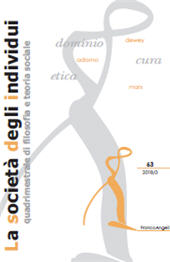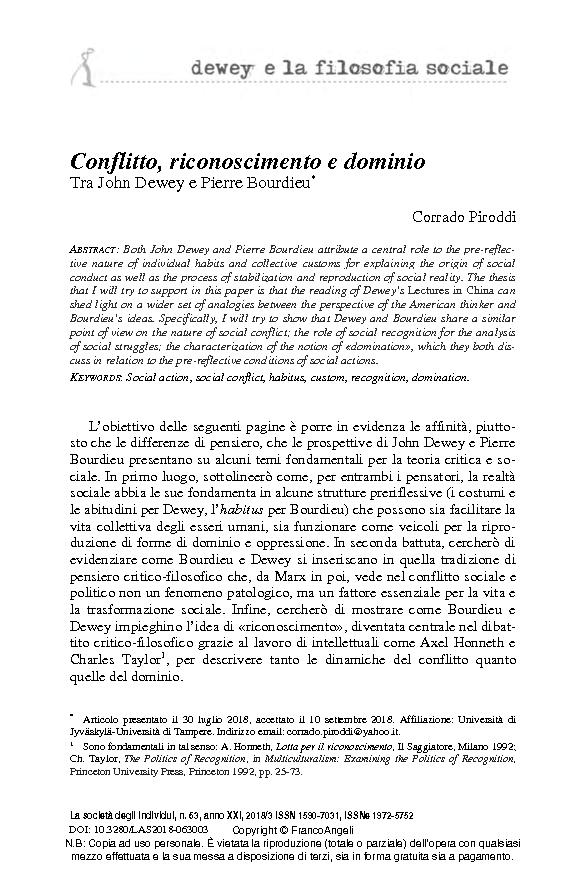Conflitto, riconoscimento e dominio Tra John Dewey e Pierre Bourdieu
35-46 p.
Both John Dewey and Pierre Bourdieu attribute a central role to the pre-reflective nature of individual habits and collective customs for explaining the origin of social conduct as well as the process of stabilization and reproduction of social reality. The thesis that I will try to support in this paper is that the reading of Dewey's Lectures in China can shed light on a wider set of analogies between the perspective of the American thinker and Bourdieu's ideas. Specifically, I will try to show that Dewey and Bourdieu share a similar point of view on the nature of social conflict; the role of social recognition for the analysis of social struggles; the characterization of the notion of «domination», which they both discuss in relation to the pre-reflective conditions of social actions. [Publisher's text].
Forma parte de
Società degli individui : 63, 3, 2018-
Artículos del mismo número (disponibles individualmente)
-
Información
Código DOI: 10.3280/LAS2018-063003
ISSN: 1972-5752
KEYWORDS
- Social action, social conflict, habitus, custom, recognition, domination



